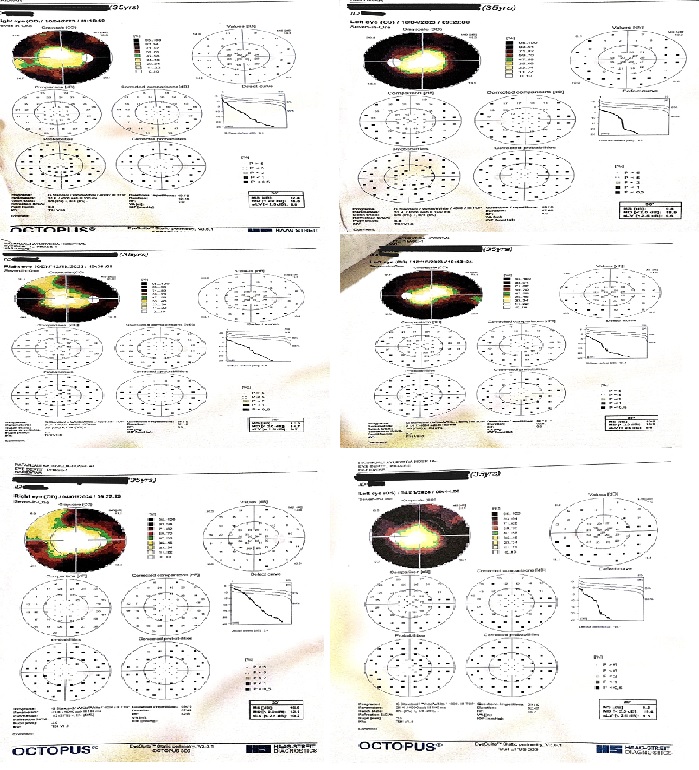Comprehending Ayurvedic Management in Retinitis Pigmentosa
DOI:
https://doi.org/10.47070/ayushdhara.v11i4.1683Keywords:
Retinitis Pigmentosa, Shleshvidagdha Drishti, NakulandhyaAbstract
Retinitis pigmentosa (RP) is a genetically acquired degenerative eye disorder in which the light sensitive retina’s photoreceptors slowly and progressively deteriorate and die, leading to vision loss and blindness. It almost occurs invariably in both eyes, beginning in childhood and often resulting in blindness in middle or advanced age. It causes progressive degeneration of rods and cones photoreceptor cells, particularly the former one. The evident symptoms include nyctalopia (night blindness) followed by concentric visual field loss due to degeneration of rods, which are solely responsible for vision in low light. According to Ayurveda, the sign and symptoms are analogous with Shleshvidagdha Drishti, Nakulandhya. Case and Intervention: A 35 years old male patient presented to eye OPD of Patanjali Ayurveda Hospital, Haridwar, with diminished vision in night time, blurred vision during day and peripheral visual loss since 1 year. The visual acuity was 6/60 and 6/6P (with pinhole) in right eye and 5/60 and 6/9P in left eye. He previously went for advice from allopathic hospital and was diagnosed with RP with no particular treatment for the same. No specific family history was found. Presence of bony spicules on fundoscopy, peripheral visual field loss and diminished night vision confirmed the diagnosis of RP. The patient underwent three courses of therapeutic procedures which consisted of multiple Kriyakalpas (eye treatment) along with oral medications. Conclusion: There is no apparent treatment for retinitis pigmentosa in modern medicine. The Ayurvedic regime effectively showcased marked improvement in visual field area loss hence paving a way for dispensing such benefits to other despaired RP patients.
Downloads

Downloads
Published
Issue
Section
License
Copyright (c) 2024 AYUSHDHARA

This work is licensed under a Creative Commons Attribution-NonCommercial-ShareAlike 4.0 International License.


